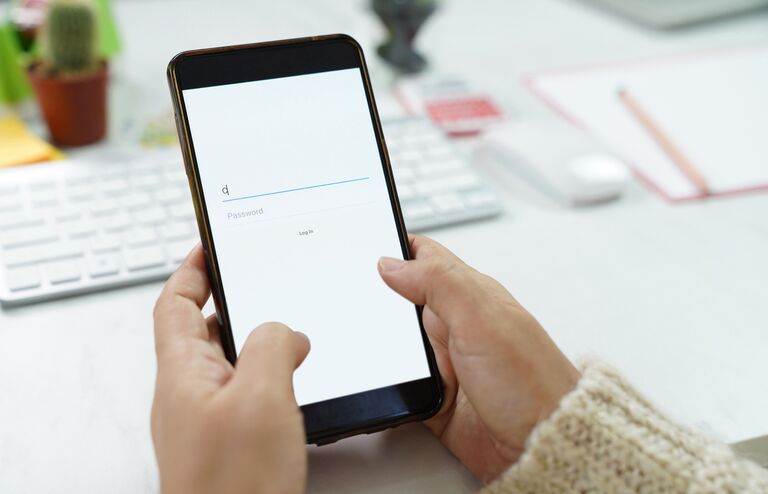Think you've been scammed?
Start by calling us on 13 25 85 or visiting your local branch. You can also report a scam online to Scamwatch.
How scammers might contact you.
What are the warning signs of a scam?
1. Scammers will often contact you with some sort of convincing story.
They may contact you regularly and use high pressure sales tactics, computer or tax problems, creating a sense of urgency to convince you to take their bait.
2. Scammers often play on your emotions.
They use the thrill of a potential win, the possibility of love, or fear of fines or falling into arrears to trick you into taking action.
3. Scammers often use professional and official-looking websites and shopping sites to convince you they are legitimate.
They are also savvy at faking the logo and branding of larger companies such as the ATO, Australia Post or PayPal. When you receive an email or phone message you’re not expecting, always question whether it’s real or fake. Look for spelling and visual inconsistencies.
4. Scammers may contact your mobile phone carrier and ‘port out’ your phone to a different carrier or SIM card.
By doing this, they can take control of your mobile number and have security messages sent to your phone in an attempt to hijack your accounts. If your mobile phone stops working, or you receive advice from your provider that your number is being ported, this is a big warning sign.
5. Scammers typically ask for money, whether immediately or after months of grooming.
For payment, scammers may direct you to their nearest post office, a wire transfer service or any number of other payment methods, including direct bank transfers, pre-loaded debit cards, gift cards or virtual currency such as Bitcoin. A request for payment through an unusual method is often a sign of a scam.
6. Scammers will often get the details incorrect.
Be extremely cautious when you receive an email with spelling and grammatical mistakes in your name or other details.
For more information about what to look for in scams
You can download the ACCC’s “The little black book of scams” or visit scamwatch.gov.au to get yourself up to speed on the latest scam news and alerts.

Common types of scams
Progress in banking technology has made it faster and easier for Australian consumers to access their money, but this has also introduced new opportunities for financial scams.
This is true regardless of whether you're making transactions through Internet Banking, a Mobile Wallet or Mobile Banking app. The wide variety of schemes out there makes it vital to understand what warning signs to look out for.
How to protect yourself against scams.
Check your bank accounts regularly.
This will help you notice any suspicious activity.
Be alert that scams exist.
If you are not expecting a phone call, email or text message, be cautious and do not provide any personal information.
Know who you are dealing with.
If you meet someone online or are unsure if it is legitimate contact from a business, then take some time to research it first. If you get an urgent text message from a family member or friend, make sure you act with caution before your reply.
Keep your personal details personal.
Place a lock on your letterbox, shred any documents that have personal information and keep important documents secure. Be careful what you share on social media.
Passwords are only for you.
Never share your passwords or pin numbers. Make sure that you change your passwords regularly and maintain good password security.
Reporting a scam.
If you think you have been scammed, start by calling us on 13 25 85 or visiting your local branch. You can also report a scam online to Scamwatch.
| Type of scam | How to contact |
| Fraud and theft | Your local police on 13 14 44 |
| Financial and Investment scams | ASIC at asic.gov.au |
| Centrelink, Medicare, Child Support and myGov | Services Australia - Scams and Identity Theft Helpdesk on 1800 941 126 |
| Cybercrime | Australian Cyber Security Centre at cyber.gov.au/report. |
| Spam | Australian Communication and Media Authority at acma.gov.au. |
| Tax-related scams | Australian Tax Office at ato.gov.au. |
If your card is lost or stolen, you can cancel a lost or stolen card by calling our card monitoring team at any time on 1300 705 750 or +61 2 8299 9534 from overseas.
You can also cancel your card online in the Mobile App, in Internet Banking or can also contact us, and our team can cancel the card on your behalf.
What to expect when you report
a scam via phone or in branch.
1. Reporting.
It is really important that you advise us straight away if you think you have been scammed. This enables us to start the investigation which can make a difference in recalling any funds lost or preventing further losses.
2. Investigation.
After receiving all the necessary information, our team will start the investigation.
Depending on factors such as the complexity and type of scam, and the response times from other financial institutions involved, investigations can take anything from seven to 45 business days to complete.
3. Request for further information and progress updates.
Throughout the investigation, we may call or email you to ask for further information and update you with any material progress.
If you haven’t heard from us, it means we’re still working on your case. We’ll get in touch once we have an update for you.
4. Outcome.
Once we’ve completed our investigation, send you a formal letter let you know the outcome.
Other helpful information.

Keeping you safe online
Learn how we're using new technology to make account applications simple and safe.
Find out more

Warning signs of a scam
No two scams are the same, but there are some common warning signs.
Find out more


